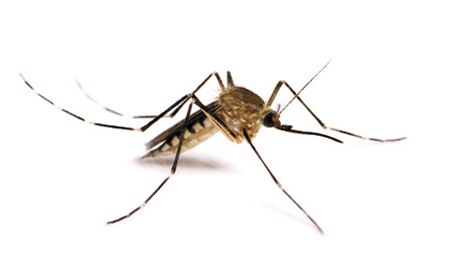Research targets mosquito's role in heartworm disease
Study shows value in targeting vector to prevent transmission, infection; Vectra 3D manufacturer urges change in protocol.

Getty ImagesA study by John McCall, MS, PhD, shows that a repellent insecticidal product (Vectra 3D) protects dogs against heartworm disease by targeting its vector-the mosquito. Rather than rely on an oral heartworm preventive alone, McCall's study supports also using a topical parasiticide to repel and kill mosquitoes, researchers say.
Ceva Animal Health is the manufacturer of Vectra 3D, a topical parasiticide combining dinotefuran, permethrin and pyriproxyfen that controls fleas and ticks. While the Vectra 3D product label already contained a claim for the product's efficacy in repelling and killing mosquitoes, it has not been an emphasis in the company's marketing-until now.
In the wake of McCall's research, Ceva is urging veterinarians and pet owners to adopt a "double defense" protocol that involves an oral heartworm preventive plus a topical insecticide. McCall's research found that:
- Vectra 3D was more than 95 percent effective in repelling and killing mosquitoes for 28 days after treatment.
- Vectra 3D was 100 percent effective in blocking the transmission of heartworm microfilariae from dogs to mosquitoes.
"A multimodal approach to the prevention of heartworm by reducing populations of vector mosquitoes, preventing mosquito biting and killing mosquitoes, as well as the monthly or bi-annual administration of macrocyclic lactone preventives should be strongly encouraged," McCall concludes in the study.
The incidence of heartworm disease continues to increase, parasitologists say. From 2013 to 2015, there was a 166 percent increase in reported positive heartworm cases, according to the Companion Animal Parasite Council as reported in a release from Ceva. And the American Heartworm Society has tracked the spread of heartworm disease to all 50 states and increased prevalence-including evidence of resistant strains-in several regions of the country.
“Macrocyclic lactones cannot continue to do all the heavy lifting,” says Elizabeth Hodgkins, technical services director for Ceva. “It baffles me that in a two-parasite-transmitted disease, we have left one parasite off scott free.”
Plus, with Zika virus and other mosquito-borne diseases in the news, itchy bites are becoming the least of the public's concerns. Robert Wirtz, PhD, retired entomologist with the Centers for Disease Control, has been at the forefront of investigating and battling these diseases.
"We know full well that mosquitoes and many other parasites inflict serious damage to both humans and our pets," Wirtz says. "The CDC has ample evidence of the importance of vector control in limiting the potential for harm to humans. The same holds true for pets. Fortunately we have the resources to combat this. It's incumbent upon veterinarians to continue to educate pet owners and use every tool possible to prevent disease transmission and, equally if not more important, eliminate the vector to decrease the spread of any diseases."
To see the full details on McCall's research, visit FightHeartwormNow.com. Vectra 3D should not be used on cats.
Podcast CE: A Surgeon’s Perspective on Current Trends for the Management of Osteoarthritis, Part 1
May 17th 2024David L. Dycus, DVM, MS, CCRP, DACVS joins Adam Christman, DVM, MBA, to discuss a proactive approach to the diagnosis of osteoarthritis and the best tools for general practice.
Listen